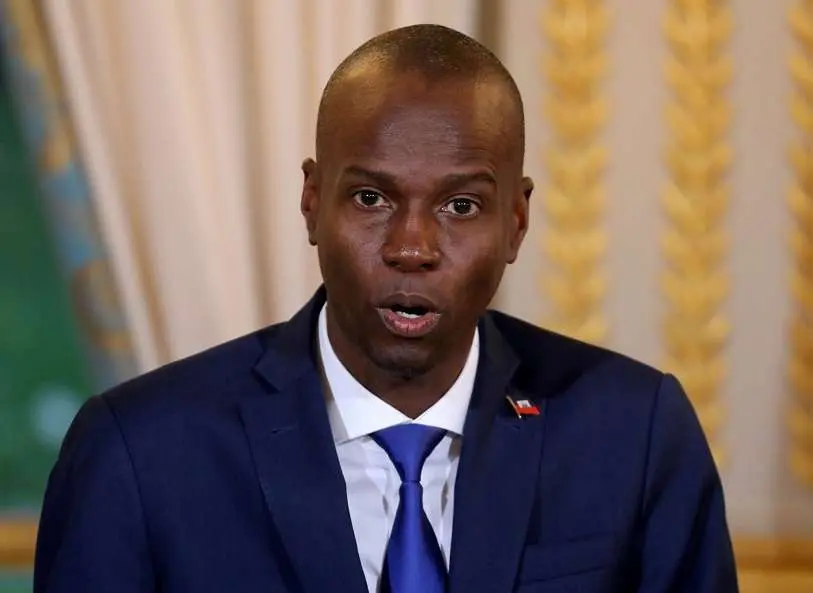Haiti, an unfortunate bottomless pit

The youngest desperately flee the country; those who cannot get a visa or set sail in fortunate boats know they will continue to struggle for a subsistence ration; the most vulnerable know that only misery awaits them and, with a little luck, the bullet or death, albeit by machete, that will free them from so much suffering.
It is Haiti, the world's first black republic, that was presumed to be an example for many other peoples when plantation slaves rose up in 1804 against Napoleon's French troops and proclaimed independence. The adventure did not start well. The leader of the revolt was not content to be a president with power controlled by democratic institutions. He wanted to be emperor, but Jacques I would not last long, assassinated by his cronies who aspired to his seat and promising privileges. They were truly ahead of the curve in terms of checking the drift of many alleged liberators.
More than two centuries have passed and Haiti is the poorest country in the Americas and one of the five poorest in the world, despite the huge amounts of humanitarian aid and successive UN missions aimed at channelling funds, giving the country political stability and leading its material reconstruction. All this has vanished: barely a dozen families control all the country's productive sectors or services, from electricity to ports, from the precarious road infrastructure to the production of construction materials.
These are families that rule the country as if it were an estate rather than a private one. There are no real functioning democratic powers to counterbalance the strength of their own militias, in the best example of a mafia organisation. The counterpoint is provided by the many NGOs, whose contribution of money, food and people does not translate into visible results after so many years of cooperation. Hundreds of millions have gone down the drain of corruption, the everlasting bribe, the result of which is precisely the lack of results in a country that is sinking deeper into misery every day.
Researcher Alejandra Martínez Perea confirms this in her study "Transitional Justice and Peacebuilding in Post-Conflict Societies - The case of Haiti". In it, she states that Haiti has been an experiment for countless peace projects, unfortunately frustrated efforts to find the formula for Transitional Justice. The failure can be attributed in large part to the fact that in Haiti there have not been two defined opposing sides since the last dictatorships, "there has only been an attempt at an abrupt transition, a process supervised by the United States and the international community, impossible to develop due to the persistence of violence, insecurity and political instability derived from the rapid changes of government".
From the Miami hospital where she is nursing her very serious wounds, Martine Moïse, the wife of assassinated President Jovenel Moïse, has appealed to "the Haitian people to continue her husband's battle" for the institutional reforms that promised to put the country on the road to normality. "Roads, drinking water, electricity supply, as well as the referendum and elections scheduled for September and November of this year were the objectives to be achieved by my husband," says his widow, a survivor of the deluge of bullets that infiltrators unloaded on the presidential bed.
It is to be feared that the appeal will not find much echo, not for lack of will on the part of most of the Haitian population, but because of the impossibility of sustaining a fight with any semblance of success against the gangsters who behave like real warlords.
One would certainly not have to go far to discover among them those who ordered, financed and facilitated access to the president's home for the 28 men charged with assassinating him. A whole army, composed of 26 Colombians and two Haitian Americans, recruited from among paramilitaries and former members of special forces. The United States and the United Nations have ruled out sending intervention troops to ensure order in the country, although Washington has promised to dispatch two FBI agents to assist in the investigations.
The disenchantment of the population is so evident that the stampede to leave Haiti is growing by the day. Like it or not, Haiti is now a failed state, where the law of the jungle reigns supreme. International aid will be of little use as long as institutions cannot be guaranteed that are not more or less openly at the service of the country's plundering mafias, allied by the way with external countries and regimes, which see a miserable and destabilised Haiti as a weak point through which to introduce their own strategy in this region of the Americas.

